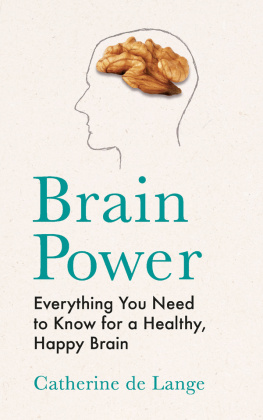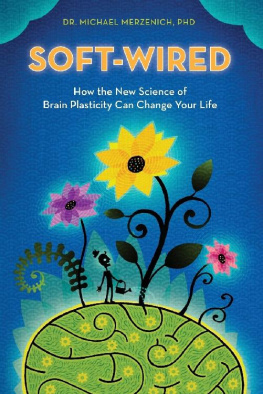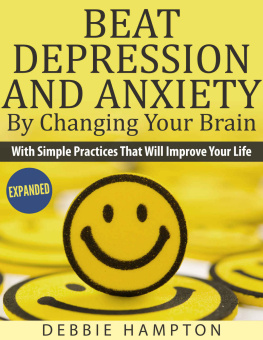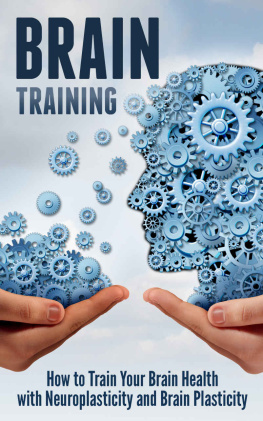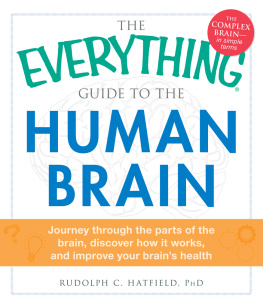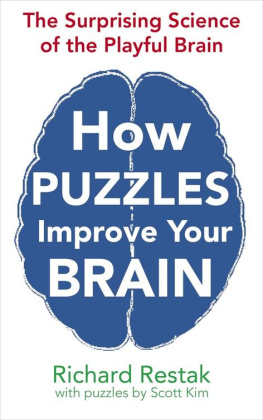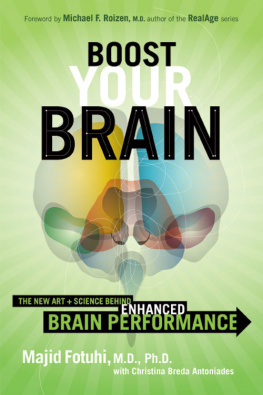There is a French saying: Gratitude is the memory of the heart, and my heart is full of such memories.
Observing the horizon reflected in this book was possible due to the permission granted to my brain to observe the horizons reflected in the ideas of many other brainsand I am grateful to them.
Similar to other books, this book is an eclectic combination of insights born in other brains and insights born in the authors brain.
I owe a great deal to many people. The seeds sprouted in this book originated in various gardens: books, journals, lectures, etc. I allow myself to paraphrase Newtons words and say I managed to look at the secrets of the brain since I relied on many insights of other brains.
Since it is difficult to compress a comprehensive review of such a broad subject into such a short book, I included selected aspects of the reviewed themes and some aphorisms related to them.
A book sometimes enables us to read about ourselves in words written by another person. Some readers will recognize themselves in all of the pages, some will recognize themselves in some of the pages, and some only in a few of the pages (and I hope in no less than that).
A book is a blind date with an anonymous reader, and I hope this book will create an affair between my brain and the brains of my honorable readers. I also hope it will bring you pleasure and be a source of knowledge about the impact of the brains function on our daily lives.
Introduction
The Universe Within
Looking from space, Earth seems like a bluish marble, abandoned and solitary, in the gloomy vastness of space, which is colder than any winter known to man.
When one examines the human brain during a neurosurgical operation, the brain seems like a fragile organ whose vulnerable softness is screaming out loud. Examining the naked brain and watching Earth from space are awakening experiences. A possible insight derived from these observations is of a mutual containment of the brain in its physical materialization in planet Earth. On the other hand, there is containment of the earth, a concept in the spiritual perception of the brain. Earthour collective homeis contained within the brainour private homeand vice versa.
The Human Brainan Evolutionary Infant
Earth is four and a half billion years old. Our species, Homo sapiens (modern intelligent human), and our brain, which is unique to us, are two hundred thousand years olda blink of an eye in evolutionary terms. In a sense, our brain is a living fossil; the contemporary version of our brain has not changed significantly in the last two hundred thousand years. One might say the model of the cavemans brain is still with us in the twenty-first century.
If we compare Earths age to a twenty-four-hour period, however, it means that our brain and our species, in their contemporary version, have existed for a little less than the last four seconds.
Although the size of the human brain has not changed since Homo sapiens first appeared, it does not mean this is the final version of the brain. It is more correct to refer to it as a building in the process of being built, an evolutionary phase. One piece of evidence that the brain is not yet a final product is the lack of integration between certain parts of the brain or, as author Arthur Koestler claimed, a few screws in the human brain are loose.
The Brain as Breacher of Evolutionary Order
A popular perception is that our body is a vessel designed to preserve our genes and make sure they are passed to future generations. In this sense, we are compared to a runner in an evolutionary relay race, who is supposed to pass the stick. The collection of genes represented in our reproductive cells to the next generation is the next runner in the race.
We fulfill the wish of every DNA strand to become two strands and are servants of the dream of every gene to be passed on to a new human being.
Evolution is not about the survival and struggle of an individual but the struggle of all genes the individual is carrying.
The human brain, as a product of evolution, is designed to improve the survival potential of the genes in the body it serves. Thus, the primary purpose of the brain is not researching the phenomena in itself, but researching the phenomena in relation to improving the survival skills of the body that stores the brain and the genes. It seems the human brain avoids the evolutionary order and enables us to examine the roots of certain phenomena, including those that do not serve a direct survival purpose.
Ignorance About the Brain as a Risk Factor
The message that is so popular in different forms in various guidebooks conveys the same meaning: one can live a long life yet live very little. Ignorance with regard to our brains capabilities and the best usage of them is one of the main causes of a dull life that compromises our potential as human beings. Familiarity with our brain is highly beneficial to us in the practical sense.
We were thrown into life involuntarily, and our brain resembles a map that can help us determine our destination and a compass that guides the direction of the way to it.
At each and every stage of our life, we will be able to select the best steps for us if we have a clearer picture of what is going on inside our brain. This is how we will be able to better use our most important natural treasure more efficiently and have better control of our destiny. Understanding the rules of our personal brain as well as the rules of the universal human brain is a promising pathway to increase our self-awareness and our sense of satisfaction from life. The blessing of knowledge will enable us to maximize our brains potential. Know thyselfthe saying inscribed on the top of the Delphi temple and adapted as the first decree by Socratesmeans, to a great extent, Know your brain.
The human culture will better its values when the knowledge basis of the culture organ becomes greater and available to more people.
A Multidisciplinary Approach to Understanding the Brain
Brain research, as with research in other complex sciences fields, has known many downfalls. Brain researchers constantly struggle with unfulfilled forecasts and expectations. A known saying describes a scientific tragedy as a murder of a beautiful theory by an ugly fact. The territory of brain science is drenched in the blood of such beauties; thus, in this sense, it is a very tragic place.
It is said nature loves to hide, and with respect to the human brain it seems this tendency is even stronger. Mental endurance, which grants the ability to search persistently for what is concealed from the eye of knowledge, is a key ingredient in the recipe for scientific success in this field.
Brain research and mainly the higher functions of the soul has been traditionally considered part of occultism. Nowadays, the arm of proven facts has turned brain research into an empiric discipline, full of observations and experiments. Nevertheless, the arm of hypotheses that guides research paths also flourishes in the field of brain science. In this book, I will try to share with readers some insights, theories, and guiding insights, all of which are held in the hands connected to these two arms.


